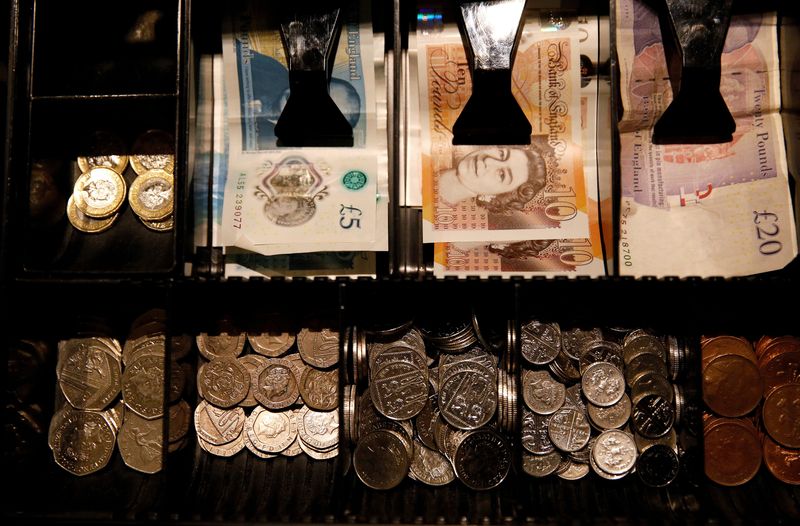LONDON (Reuters) - Speculators have trimmed their bullish positions in the pound for the first time in eight weeks, suggesting that they may be on the hunt for a new catalyst to give the currency a bit of fresh pep.
Weekly figures from the U.S. Commodity Futures Trading Commission (CFTC) show a modest decline to around $3.652 billion, from $3.97 billion previously, the highest since August.
The pound has held up better than all other major currencies against the dollar in 2024, down around 0.2% so far this year at about $1.269. And while it has had a decent rally from early February's two-month lows, overall, it has been broadly stuck in a range of around $1.251 to $1.278 since the third week in December.
It is not alone in being rangebound. Volatility has collapsed across markets. But sterling volatility has hit a four-year low, reflecting the degree of investor complacency and the currency's steady performance.
The Bank of England is one thing that could give the pound a nudge and while it is still expected to cut interest rates later this year, traders think it will cut by less, and far later, than they thought just three weeks ago.
The assumption that the BoE will move later than the Federal Reserve and the European Central Bank has given the pound something of an edge in the past 12 months, and in mid-2023 speculators' bullish positions reached a nine-year high of $5.192 billion.
However, as traders have also pushed back assumptions of Federal Reserve and European Central Bank rate cuts, the gap between the UK and other markets has only widened modestly.
Futures show traders expect the BoE to deliver around 60 basis points (bps) of cuts this year, around half what they expected in early February.
The Fed is expected to cut rates by around 82 bps by the end of this year, compared with an expectation for around 133 bps in cuts at the start of the month.
This would leave UK and U.S. rates roughly at parity for the first time since May 2022.
As for economic data, that too has done little to move the dial. Britain is in a technical recession, but growth hasn't slowed too dramatically and the most recent reading of services sector activity suggests this could well prove to be a shallow, short-lived one.
Next week brings finance minister Jeremy Hunt's Spring Budget, words that will make many investors in Britain shudder after the volatility induced by then-Prime Minister Liz Truss' 'mini budget' of autumn 2022.
But analysts at ING say current market conditions "could not be more different than those that prevailed at the height of the Liz Truss debacle" and, as such, the pound is unlikely to display such big price swings.

For now, no news could be good news for the British currency.
ING says the quieter conditions have benefited sterling as the pound's status as a higher-yielding currency is keeping it popular with carry traders - those that borrow a low-yielding currency such as the yen to invest in a higher-yielding one - a strategy that is more difficult in a volatile environment.